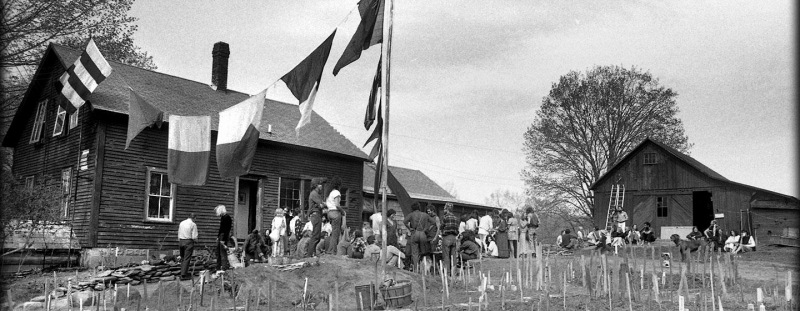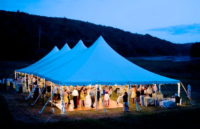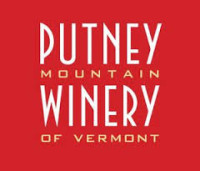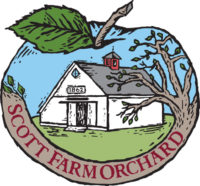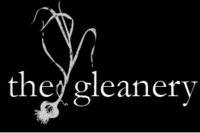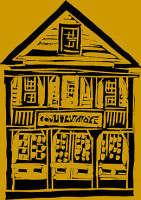By Verandah Porche
Memorial Day 50 years ago, we posed in front of the home we’d buy that afternoon. We tried the door (locked), peeked through the windows, and figured it would be okay. Why? Because a huge peach orchard bloomed on the hilltop. Because we still believed in common dreams. Fresh from assassinations, riots, and the fracturing of political alliances, we envisioned a future on these acres, the open fields, rickety house, barn, and outbuildings, surrounded by the great northern forest. At 23, I wanted my life to be a poem, right here, in a loving community.
Sudden Eden
For that pinkish haze across the orchard,
ten thousand blossoms on a widow’s peak,
we forsook the Revolution and bought the farm.
The widow Rosie Franklin held our mortgage. We were her Social Security: 10 years, $26,000, hard-earned. The locals thought “the hippies got taken,” but Rosie seemed as pleased with her all-electric apartment as we were with her 1937 Home Comfort wood kitchen range.
There were eight or 10 of us at the start: feisty women, witty men, a devoted gay couple, one guy in the closet. We had no rules beyond Don’t smoke in the barn; no plan, no pecking order, no leader. We are all prima donnas here. We valued solidarity, privacy, and shared ownership. During that first winter, we established a nonprofit corporation, Monteverdi Artists Collaborative, to secure the farm and support our creations.
A few of us came with useful skills: could fell a tree, tinker with a motor, shingle a roof, grow a tomato. I’d never really been outdoors before. The suburb I left at 17 had private properties divided by shrubs. I loved to wander in Manhattan’s human wilderness, another stranger on the A train. In Vermont, I settled in between bedrock and meteors, and learned to live in my body. My friends and I chopped wood, shoveled shit, hauled water, cared for the cows, curdled milk. We stacked hay, hauled sap buckets, and ate with our old farmer mentors, consuming their lore, memorizing their vernacular.
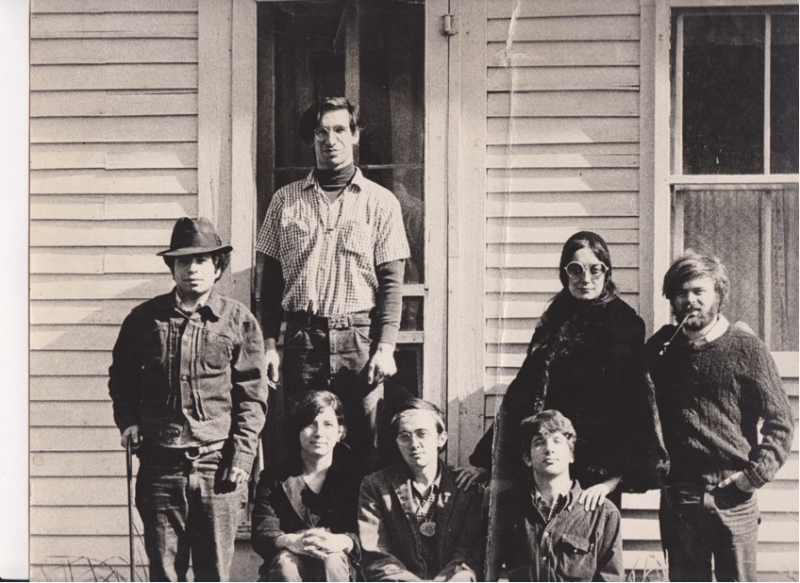
The pioneers of Total Loss Farm pose on the doorstep of the farmhouse. Sitting, from left: Michelle Clarke, Ray Mungo, and Peter Simon. Standing, from left: Richard Wizansky, Marty Jezer, Verandah Porche, and Laurie Miller. Photo courtesy of petersimon.com.
Early on, we chose the name Total Loss Farm on a whim, joking that conversation was our best crop. More often we called it Packer Corners, after the historic crossroads bisecting the land. Over the winters, we wrote poetry, fiction, history, essays, biography, and memoir. We read our “produce” after home-raised dinners.
During the Seventies, visionary director John Carroll convinced us we could act. The Monteverdi Players staged lavish public outdoor theater productions. Fenwick, the sculptor, manufactured the Mad Tea Party from local trees for “Alice in Wonderland,” and a floating island in Sweet Pond for “The Tempest.” Meanwhile, we had kids, launched modest careers, raised a huge garden, protested, as needed, and helped to found and support fledgling institutions, the Brattleboro Farmers’ Market, the Women’s Crisis Center, the Common Ground Restaurant, and later the Brattleboro Area AIDS Project.
During the Eighties, we passed long academic summers together. Mornings we wrote or foraged, while my older daughter watched the neighborhood kids on a houseboat that somehow appeared in the field. We dined on ribs at the picnic table. The children put on skits. My husband went to law school; one communard finished medical school; another, a doctorate in education. Fall to winter, we kept our noses to the grindstone and plied our trades.
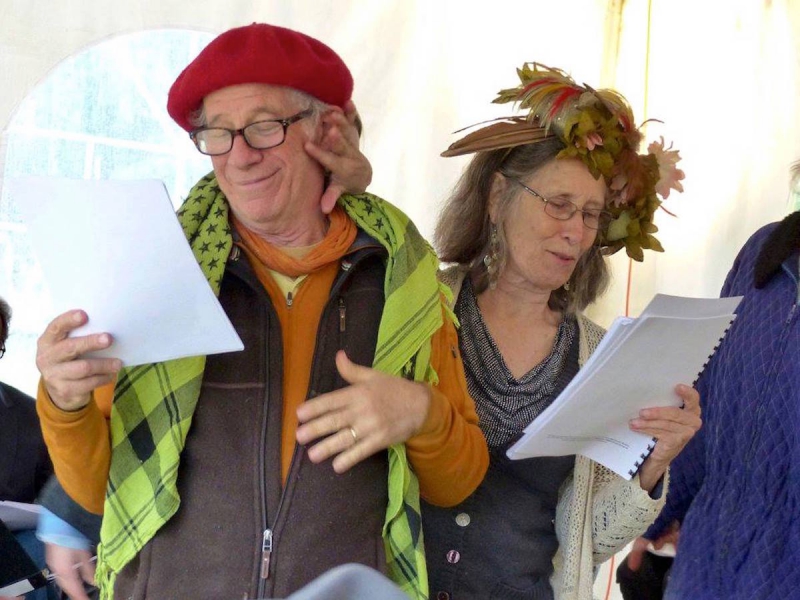
Peter Gould and Ellen Snyder, former partners who were members of Total Loss Farm, spar as Titania and Bottom in “A Midsummer Night’s Dream,” performed as part of the commune’s 50th anniversary. Photo by Laura Moscowitz.
The Nineties, couples divorced. Life was precarious. In the nursing home where I wrote, women told me this story, “When we lost our pa, Mom took in boarders.” By the 21st century, there were animals grazing in the fields again, and love in the kitchen. Over time, the commune, once the main year-round dwelling in the neighborhood, became part of a close-knit community all over our hill.
After half a century, Packer Corners is still here, a refuge for friendship and free thought in turbulent times. To celebrate, our alumni and friends blew in after the solstice and before the rain, for a barbecue, a slideshow of our ancient youth, a bonfire. Next day, high spirits, cold drizzle: paper making with pulp from my late husband’s shirts; grape leaf rolling beside the chimney that outlived its building; Midsummer Night’s Dream, with music composed for the 1976 production, an original cast reading bolstered by offspring.
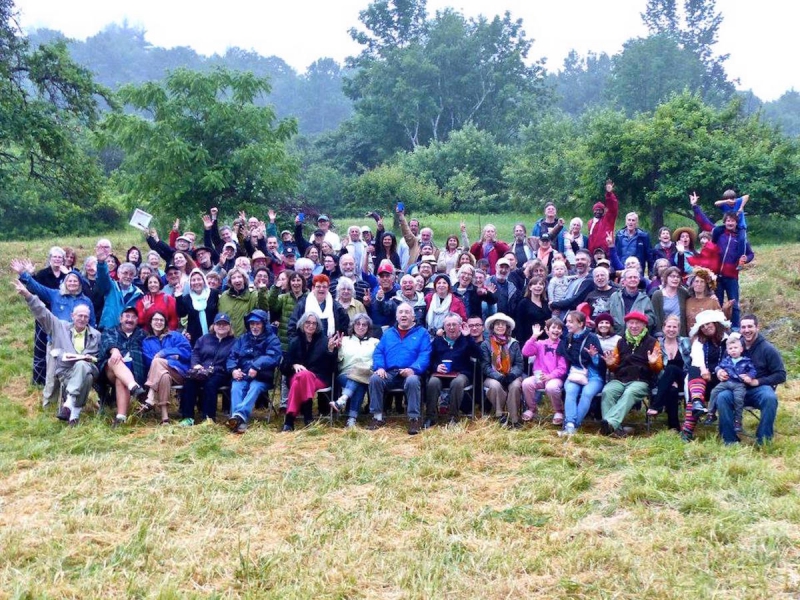
Members of the Total Loss Farm gathered for a celebration of the commune’s 50th anniversary. Photo by Laura Moscowitz.
Finally, the dance party with the Dysfunctional Family Jazz Band. “We put the funk in dysfunctional,” quips Patty Carpenter, who sings, plays keyboard, and gets the gigs. Her daughter Melissa Shetler, who trades off singing lead, debuted on the Packer Corners stage at age 2. See us, 50 strong and just plain strange, singing and stomping long past bedtime in our neighbors’ sturdy barn built by architect Eli Gould, firstborn of the farm.
Welcome to Total Loss Farm
A song by Verandah Porche
Welcome to Total Loss Farm,
Famous, formless, flaky together.
Greet you with open arms.
Screen door smashes into the weather.
Set down your roots and roam.
There’s no place like home.
Remember before we signed the deed
We posed for our future—
American Gothic for Seven:
If you lived here you’d be home now in Heaven.
We unlocked the door, threw away the key.
Nothing to steal here, lie easy.
Remember we took our books to the woods
And learned to call the fire by name.
Huddled by the tin stove watching the wet logs
Speak in tongues of flame.
Shuddered by the storm door, listened to the Wind roar,
“All the world is my stage!”
I copied his curses, chapters and verses
On my empty page, and He said,
“Welcome to Total Loss Farm.”
Remember we planted sons and daughters
Side by side with corn.
Barnyard madonnas puffing marijuana,
Holding court on the lawn.
Well, we fed ‘em spaghetti, gave ‘em machetes,
Watched them conquer the barn.
When the families ended, blended, extended,
They knew where they were born, and they said,
“Welcome to Total Loss Farm.”
Twenty years later, I said,
“Emery, my neighbor,
What do you think of the pear thrips
Sucking the maple leaves?”
He said, “Yes, you can’t expect life to be
An unbroken string of successes.
No, you can’t expect life to be
an unbroken string of successes!”
Think about what we’re done:
Done with, do to, done for each other.
Twenty-five years have gone—
Sheltered, shattered,
Cherished, and smothered.
Silver and sweet, we’ve known:
There’s no place like home,
Home on the Range,
We’re just plain strange.
We’re just plain strange.
Verandah Porche wrote this song for the 25th anniversary of the farm. “Double it for 50,” she advises.
Verandah Porche has been, as she describes on her website (www.verandahporche.com), “a poet, a mentor, and a scribe” in Vermont for that half century. The historical photos accompanying this piece come from a Total Loss Farm expatriate, Peter Simon (petersimon.com), a nationally acclaimed photographer, photojournalist, author, music historian, and instructor. Over the course of his 50-year career, he has covered an eclectic range of subjects documenting including but not limited to: 1960s free love and protest, the greatest names in rock ’n’ roll, reggae and pop music, the scenic beauty of his beloved island Martha’s Vineyard, the action of major league baseball, stunning portraits of people in the everyday, iconic captures of the most celebrated personalities of our time.


